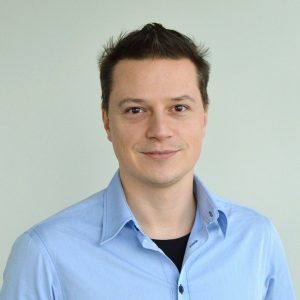Structured Concurrency in C++ is a two-day onsite training course with programming examples, taught by Mateusz Pusz. It is offered at the Gaylord Rockies from 09:00 to 17:00 Aurora time (MDT) on Saturday and Sunday, September 13th and 14th, 2025 (immediately prior to the conference). Lunch is included.
◈ Register Here ◈ See Other Offerings ◈
Course Description
Today, C++ software is increasingly asynchronous and parallel, a trend that is likely only to continue going forward. While the C++ Standard Library has a rich set of concurrency primitives and lower-level building blocks, we lack a standard framework for asynchrony and parallelism that C++ programmers desperately need.
Asynchrony and parallelism appear everywhere, from processor hardware interfaces to networking, to file I/O, to GUIs, to accelerators. Every C++ domain and every platform needs to deal with asynchrony and parallelism, from scientific computing to video games to financial services, from the smallest mobile devices to your laptop to GPUs in the world’s fastest supercomputer.
This training shows that concurrency is not only about the C++ Standard Library threading and synchronization low-level tools. During the workshop, you will learn how to write efficient, asynchronous, and highly concurrent code without the need for any manual synchronization between threads, leading to simpler code and faster runtimes. During the hands-on exercises, you will implement coroutine tools from scratch and create parallel processing pipelines with a new `std::execution` framework, also called Senders/Receivers, which will arrive as a part of C++26. The reference implementation of this framework is publicly available on GitHub so that it can be used in production immediately without the need to wait for the next C++ release.
During the workshop, we will work with the latest version of the compiler thanks to the Compiler Explorer, so no special environment preparation is needed.
What You Will Learn
- Understand what structured concurrency is and how it helps write thread-safe code without the need for additional synchronization.
- A detailed discussion of coroutine machinery and its suspend and customization points.
- How to implement synchronous and asynchronous tasks using coroutines.
- How to build a complex asynchronous pipeline with schedulers, senders, and receivers in a few lines of code.
- Practical usage of all the asynchronous algorithms provided by the `std::execution` framework.
Workshop Structure
- 30% lecture
- 70% hands-on coding
Prerequisites
Experience
A recent experience with writing simple C++ templates.
Environment
- A laptop with a web browser and access to the Internet
- All hands-on exercises will be implemented using Compiler Explorer
Course Topics
- Asynchronous Programming with Coroutines
- Coroutine keywords, restrictions, suspend points
- Coroutine return type
- std::coroutine_traits
- Coroutine promise interface
- std::coroutine_handle
- Awaiters and Awaitables
- Symmetric Control Transfer
- C++ exceptions support
- Eager and Lazy Tasks
- async with coroutines
- sync_await
- Structured Concurrency with Senders and Receivers
- Motivation
- The structure of an asynchronous processing pipeline
- Data parallelism with senders
- Cancellation support
- Transferring the work
- Sender factories
- Sender adaptors
- Sender consumers
- Implementing an asynchronous algorithm
- Sender/Receivers and Coroutines
Course Instructor

Mateusz Pusz is a software architect, principal engineer, and security champion with over 20 years of experience designing, writing, and maintaining C++ code for fun and a living. A trainer with over 15 years of C++ teaching experience, a consultant, a conference speaker, and an evangelist. His main areas of interest and expertise are Modern C++, code performance, low latency, safety, and maintainability.
Mateusz worked at Intel for 13 years and is now a Principal Software Engineer and the head of the C++ Competency Center at EPAM Systems. He is also the founder of Train IT, which provides dedicated C++ training and consulting services to corporations worldwide.
Mateusz contributes to and is an active voting member of the ISO C++ Committee (WG21), where he, along with the top C++ experts worldwide, shapes the future of the C++ language.
